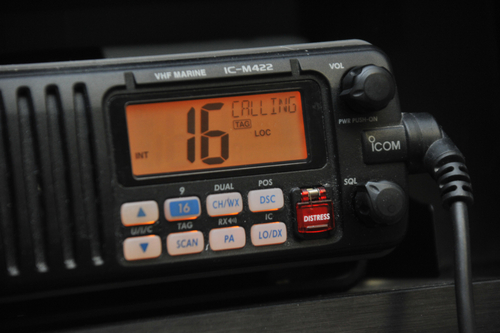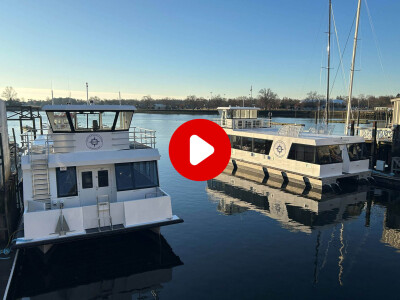Evolving international standards will bring a new channel numbering scheme to marine VHF radios, with 18 channels getting new, four-digit designations in the U.S.
The move is part of the International Telecommunications Union's move to make marine radio communications more efficient. For U.S. mariners, it should be a seamless transition, with the new numbers indicating simplex use of the ship station transmit side of what had been international duplex channels.
“They were seeing there’s not a need for all these duplex channels,” said Joseph Hersey, a retired Coast Guard communications expert who now works at the Coast Guard Navigation Center. “If we’re going to do this, we need a new way of numbering the channels.”
Duplex channels use two different frequencies for ship transmit and ship receive, typically through a shore station. Simplex channels send and receive on the same frequency, allowing direct vessel-to-vessel communication.
The changed numbers for U.S. channels 1, 5 and 7 give them new prefixes of 100- (for 1001, 1005, and 1007). Fifteen other channels now with two digits get 10- prefixes – like the new 1022 for Coast Guard marine safety information broadcasts. Most of the new four-digit channels will be for commercial use and port operations, as detailed on a new frequencies chart from the Coast Guard Navigation Center.
The change has been moving slowly since the ITU agreed to the new numbering at a 2012 conference. It will not get a lot of fanfare in the U.S., in the way that digital selective calling (DSC) and the Coast Guard’s Rescue 21 system with automatic distress calling did when that technology was rolled out a decade ago.
“People didn’t pay much attention (to the ITU decision) but the manufacturers did” because they are selling marine radios to a worldwide audience with a long lead time, Hersey said. The new channel numberings will appear in U.S. market radios in 2017, he said. “Beginning early in the year, they will be slowly starting to come out.”




.jpg.small.400x400.jpg)
